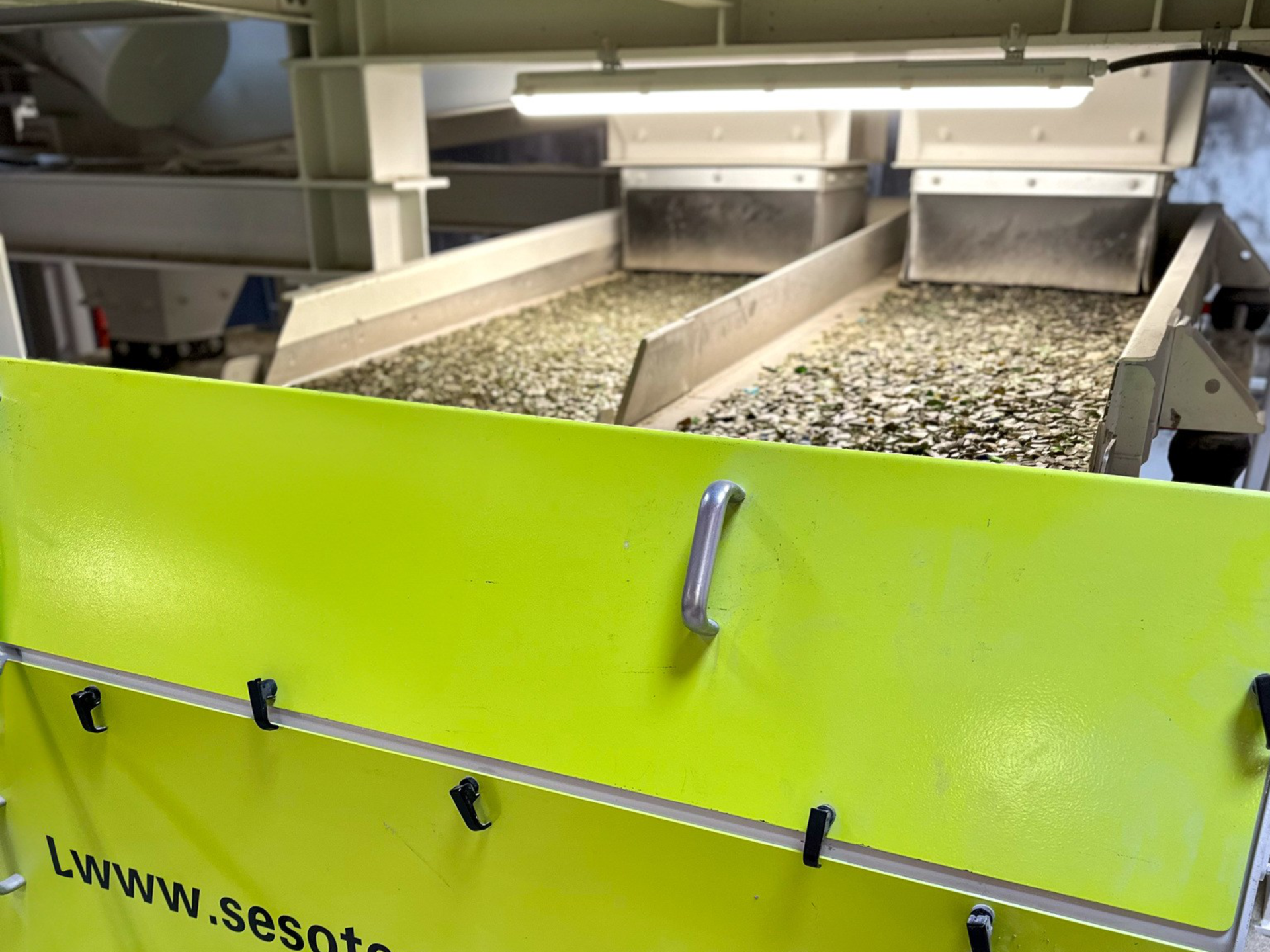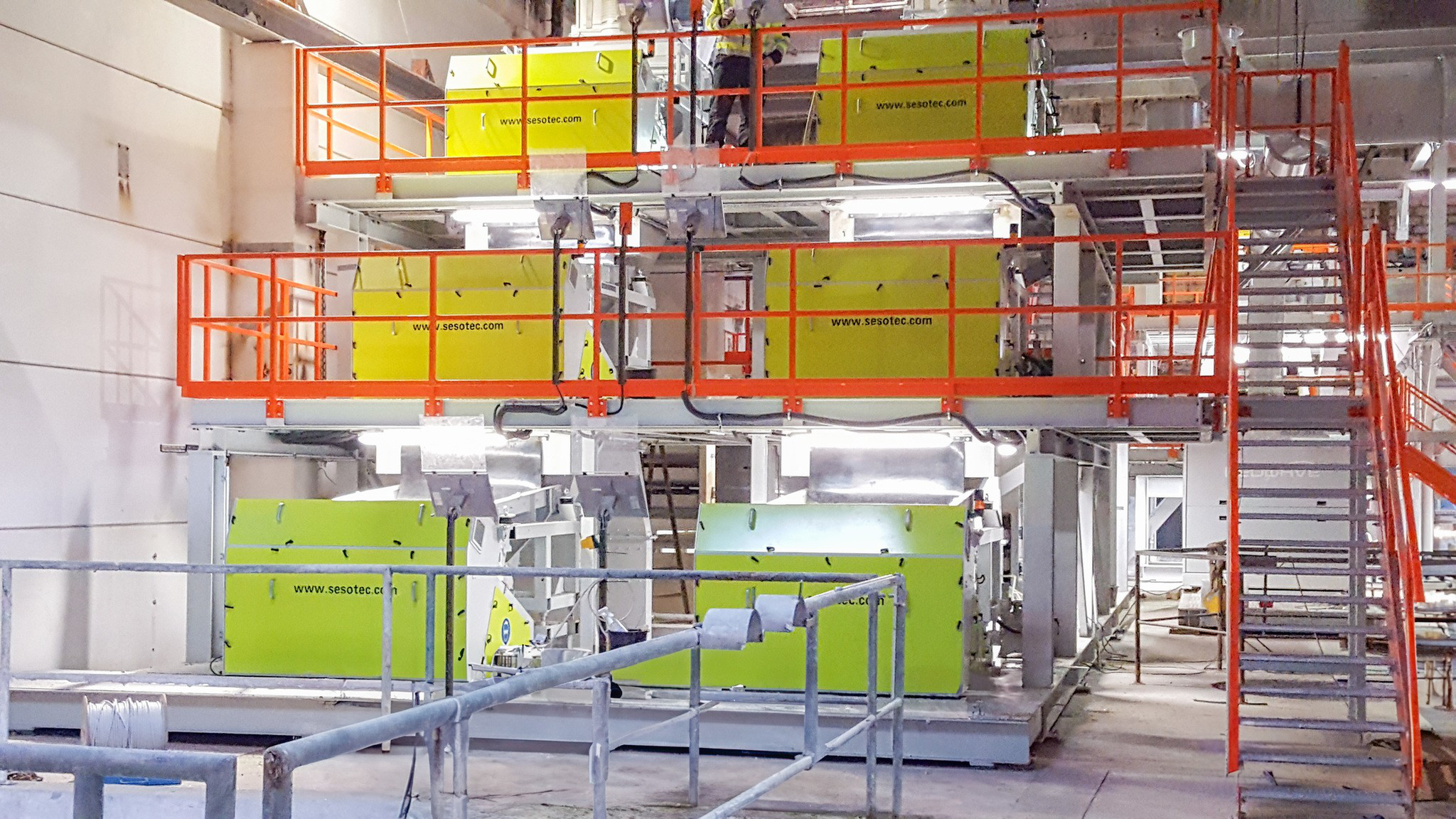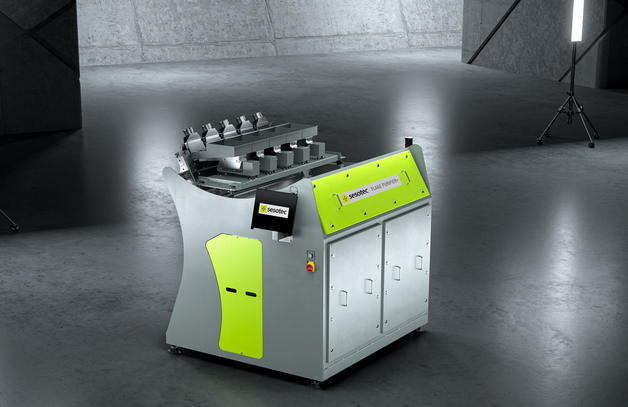The Reiling Group of Companies is one of the leading recycling specialists in Germany for glass, plastic (PET), wood, and photovoltaic modules. The production and marketing of foam glass gravel and Revitro (decorative glass) are also part of the portfolio. For more than 100 years, Reiling has been committed to collecting and efficiently recycling valuable materials, thus making an important contribution to environmental and climate protection. For the processing of various valuable materials, Reiling relies on its own expertise as well as on the latest recycling processes and technologies.
The family-run company operates at 13 locations in Germany and six locations in Europe. At the glass recycling sites in Germany, Denmark, and Poland, the Reiling Group processes over 1 million tons of glass in total. The high-quality recyclate can then be used value-adding in almost any melting application.

The problem: Valuable shards of opaque, dark glass are lost in the sorting process.
Glass, especially container glass, is distinguished as an outstanding recyclable material that can be recycled indefinitely. Prerequisites for the use of cullet in the production of new products are – in addition to correct collection – the subsequent processing in special glass sorting plants, such as those operated by the Reiling Group.
At the Reiling locations, recycling processes are used that are designed for the removal of contaminants and color sorting. In the proven separation of CSP (ceramics, stones, and porcelain), organics, and color sorting, Reiling is always striving to optimize recycling processes to achieve a closed loop with minimal material loss and the highest quality of secondary raw materials.
In 2015, Reiling established the Danish recycling site in Naestved for the processing of hollow and flat glass. The plant uses SPEKTRUM glass sorting systems from Sesotec. Through these sorting systems, CSP and metals are reliably separated in a step-by-step recycling process. In a further step, the color sorting of the glass shards takes place.
The result: white, brown, and green glass of the highest quality, ready for use in the production of new glass bottles. A particular challenge in the field of glass recycling has so far been the sorting of dark shards. The conventional optical recognition used in glass recycling plants is based on transmitted light. As soon as less light than required passes through a shard piece, it is classified by a normal glass sorting system as opaque and thus as a contamination. Due to the material thickness and the intensity of the coloring (special bottles) and the resulting light impermeability, these shards can often not be distinguished from CSP. They are ejected together with the CSP contaminants. Valuable material is lost.
The solution: New sensors for detecting very dark glass
The milestone in material recovery was achieved through the development of a new sensor technology for the Sesotec sorting systems, which now also enables the detection of dark, opaque glass pieces. The examination of the shards is no longer done solely using normal transmitted light illumination, but with an additional special lighting plus sensor technology (C-C sensor).
Specifically, dark shards are thus reliably distinguished from KSP and can remain in the material stream, as they are no longer unintentionally ejected with the KSP contaminants as before. This proves to be a tremendous advantage in glass recovery. The particularly heavy shards, due to their material thickness, remain in the material cycle and can be used for the production of new goods. In this particular case, this was achieved with the latest technology in a line completely without glass drying.
The new sensor technology is also the reason why Reiling has invested in the latest Sesotec technology – SPEKTRUM glass sorting systems with a special C-C sensor for sorting dark glass shards – to significantly improve glass recovery once again. Reiling was even one of the first companies to use sorting with the C-C sensor in a contaminated area and is working very successfully with it.
For the expansion of the glass recycling plant at the Denmark site, the Sesotec partner KRS Recycling Systems was commissioned. KRS carried out the complete handling of the plant expansion: from consulting, planning, construction, commissioning, service, and support.
The customer benefit: Optimized glass recovery with minimal losses.
Reiling continuously invests in state-of-the-art plant technology and works on optimizing recycling processes - always striving to keep as much material as possible in the cycle. "With the new Sesotec technology, more valuable, dark shards remain in the material cycle. The recovered glass content is significantly increased overall and can be used value-adding in high-quality melting applications. A win for both profitability and the environment," says Benedikt Heitmann, Managing Director at Reiling Glas Recycling.
All in all, the new Sesotec C-C sensor technology is a major achievement for recycling companies, for the circular economy, and of course also an economic factor when dark shards can be reused in new glass production.
Download this case study as a document.


